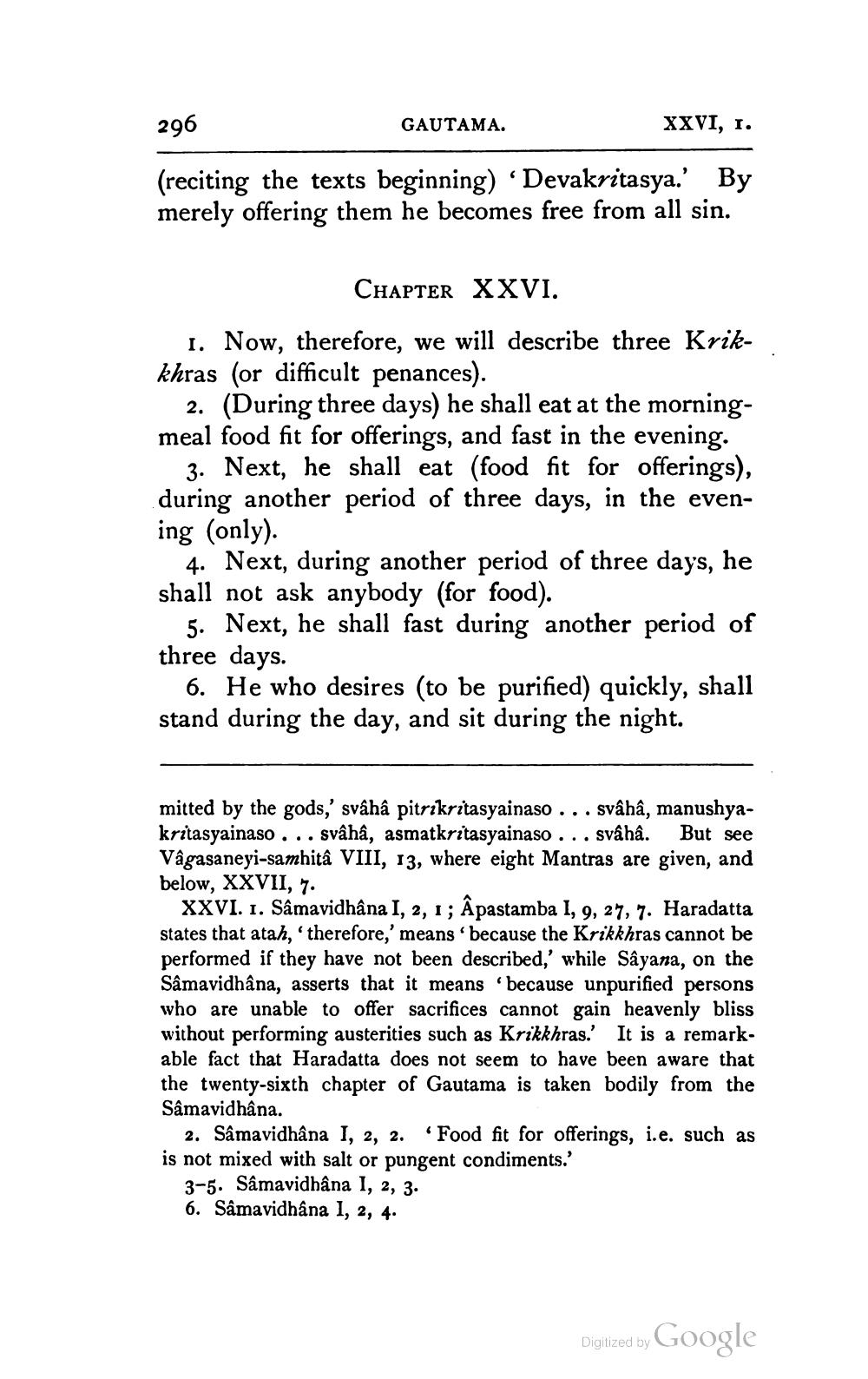________________
296
(reciting the texts beginning) 'Devakritasya.' By merely offering them he becomes free from all sin.
GAUTAMA.
XXVI, I.
CHAPTER XXVI.
1. Now, therefore, we will describe three Krikkhras (or difficult penances).
2. (During three days) he shall eat at the morningmeal food fit for offerings, and fast in the evening.
3. Next, he shall eat (food fit for offerings), during another period of three days, in the evening (only).
4. Next, during another period of three days, he shall not ask anybody (for food).
5. Next, he shall fast during another period of three days.
6. He who desires (to be purified) quickly, shall stand during the day, and sit during the night.
svâhâ, manushyasvâhâ. But see
mitted by the gods,' svâhâ pitrikritasyainaso. kritasyainaso. svâhâ, asmatkritasyainaso Vâgasaneyi-samhitâ VIII, 13, where eight Mantras are given, and below, XXVII, 7.
XXVI. 1. Sâmavidhâna I, 2, 1; Âpastamba 1, 9, 27, 7. Haradatta states that atah, 'therefore,' means 'because the Krikkhras cannot be performed if they have not been described,' while Sâyana, on the Sâmavidhâna, asserts that it means 'because unpurified persons who are unable to offer sacrifices cannot gain heavenly bliss without performing austerities such as Krikkhras.' It is a remarkable fact that Haradatta does not seem to have been aware that the twenty-sixth chapter of Gautama is taken bodily from the Sâmavidhâna.
2. Sâmavidhâna I, 2, 2. 'Food fit for offerings, i.e. such as is not mixed with salt or pungent condiments.'
3-5. Sâmavidhâna I, 2, 3.
6. Sâmavidhâna I, 2, 4.
Digitized by
Google




